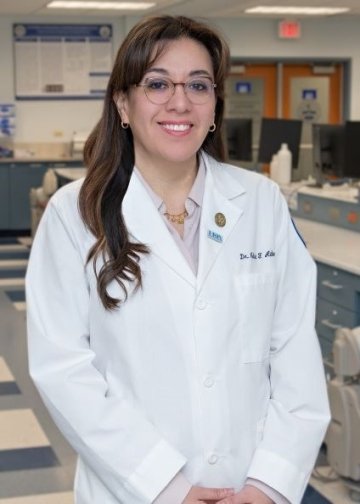
I want my students to be evidence-informed practitioners, to be occupation centered, to be agents of change, to be advocates for their clients, and to be respectful towards the individual differences of each person they will work with, to practice with h
Years at Midwestern University:
4
Research Interests:
My research work explores the impact of social and physical environmental factors on the participation of children with Autism in home, school, and community activities. At present, I am focusing on developing a capacity-building model for caregivers of children with autism to develop strategies to support their child’s overall health and well-being using the coaching model. Coaching is a capacity-building model that empowers caregivers to create their own strategies to match their unique circumstances within their naturalistic environment.
Some recent research projects conducted by Midwestern University students using the coaching model include:
- In 2021, a group of O.T.D. students and I conducted a research study to investigate the outcomes of parental coaching interventions that addressed indoor and outdoor play participation of children with Autism (ages 3-6) using case study methodology. Play participation as measured by the Test of Playfulness improved in all participants.
- In 2022, another group of O.T.D. students developed a virtual parent coaching program to improve the participation of families of children who have Sensory Processing Disorder related to accessing community spaces. Satisfaction and performance in accessing community spaces and community participation improved in all participants as measured by the Canadian Occupational Performance Measure.
I am also interested in collaborating with pediatricians to explore the role of occupational therapy in pediatric primary care settings especially supporting the social-emotional development of children 0-5 years of age during their well-child checkup.
What is the most rewarding part of being a member of the Midwestern University faculty?
The most rewarding part of being a member of MWU is teaching and mentoring Doctor of Occupational Therapy (O.T.D.) students. It is fulfilling to be a part of their professional journey of becoming occupational therapists. I enjoy my role as a research mentor and a capstone mentor for O.T.D. Students. In these roles, I get to collaborate with students to develop innovative research and capstone projects that can have an impact on the local community and make a difference in the lives of individuals. For example, in 2022, Jordyn Fulton, a graduate from the O.T.D. program, collaborated with the Morton Arboretum as a part of her capstone project and developed resources to support families of children with Sensory Processing Dysfunctions to enjoy nature in the Children’s Garden.
How do you engage students in the learning process?
Belonging matters.
I believe in creating an inclusive learning environment where diversity and individual differences related to students’ life experiences are recognized, understood, and respected, so that each student experiences a sense of belonging in the classroom.
Learning with and from each other.
I devote time to creating assignments that allow students to collaborate in groups, learn from each other’s life experiences, express creativity, and enjoy the learning process. In one of my courses, students develop a case study-based website that promotes self-expression, personal reflection, and active engagement, while learning the application of occupational-centered models to clinical practice.
Self-reflection is a powerful learning tool.
I want students to become effective solution-finders, thereby I constantly ask them to rethink solutions for an issue and self-reflect on their learning process, especially during their research and capstone experiences.
What do you hope students learn from your classes?:
I teach two important courses within the O.T.D. curriculum, Theoretical Foundations of Occupational Therapy and Professional Writing. I hope that through my theories course, students learn the value of occupation-centered practice and are mindful of the impact of a client’s physical, social, political, and cultural environment on their access to and engagement in meaningful occupations. On the other hand, I hope that through the professional writing course, students learn to develop their professional identity as writers and future occupational therapy practice leaders.
What lessons would you like students to take with them in their professional careers?:
I want my students to be evidence-informed practitioners, to be occupation centered, to be agents of change, to be advocates for their clients, and to be respectful towards the individual differences of each person they will work with, to practice with humility, and to be grateful to be an occupational therapy practitioner. I want them to know that they can empower their clients and make a difference in their life!
What about your profession should people know more about?:
Occupational therapists work with individuals across the lifespan with or without a disability to help them participate in activities that are meaningful for them such as self-care, work-related, leisure, and social participation. Occupational therapists consider the complex interaction between a client, their environment, and activities during evaluation and identify effective solutions to maximize participation. Occupational therapists work in a variety of settings such as hospitals, outpatient clinics, schools, community settings, primary care, etc.



